Havey Institute for Global Health Supporters Celebrate Institute’s Transformational Work Around the World
September 28, 2023
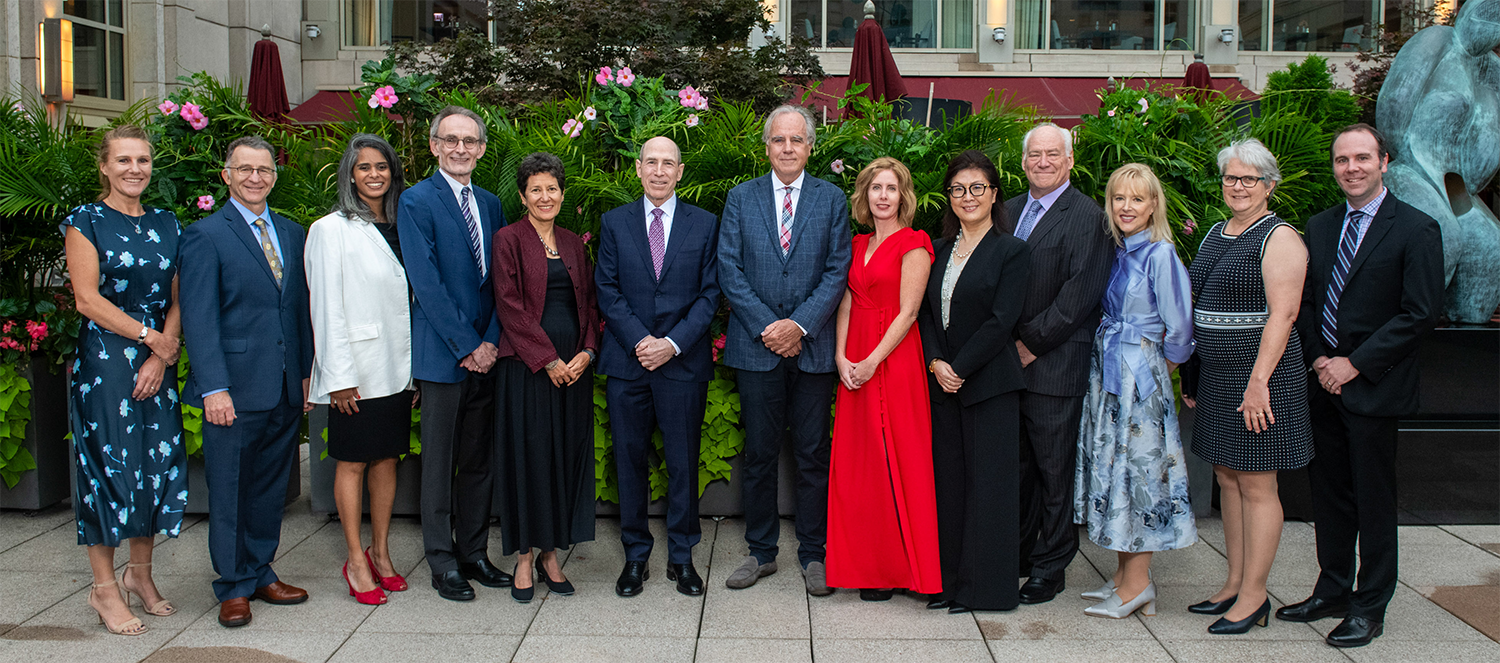
More than 250 friends and members of Northwestern University Feinberg School of Medicine gathered on September 27 to celebrate efforts to improve lives across the globe.
At the 16th Annual Robert J. Havey, MD Institute for Global Health Benefit Dinner, held at The Peninsula Chicago, institute leaders shared success stories and updates on their research, training, and clinical outreach projects—many made possible by philanthropy.
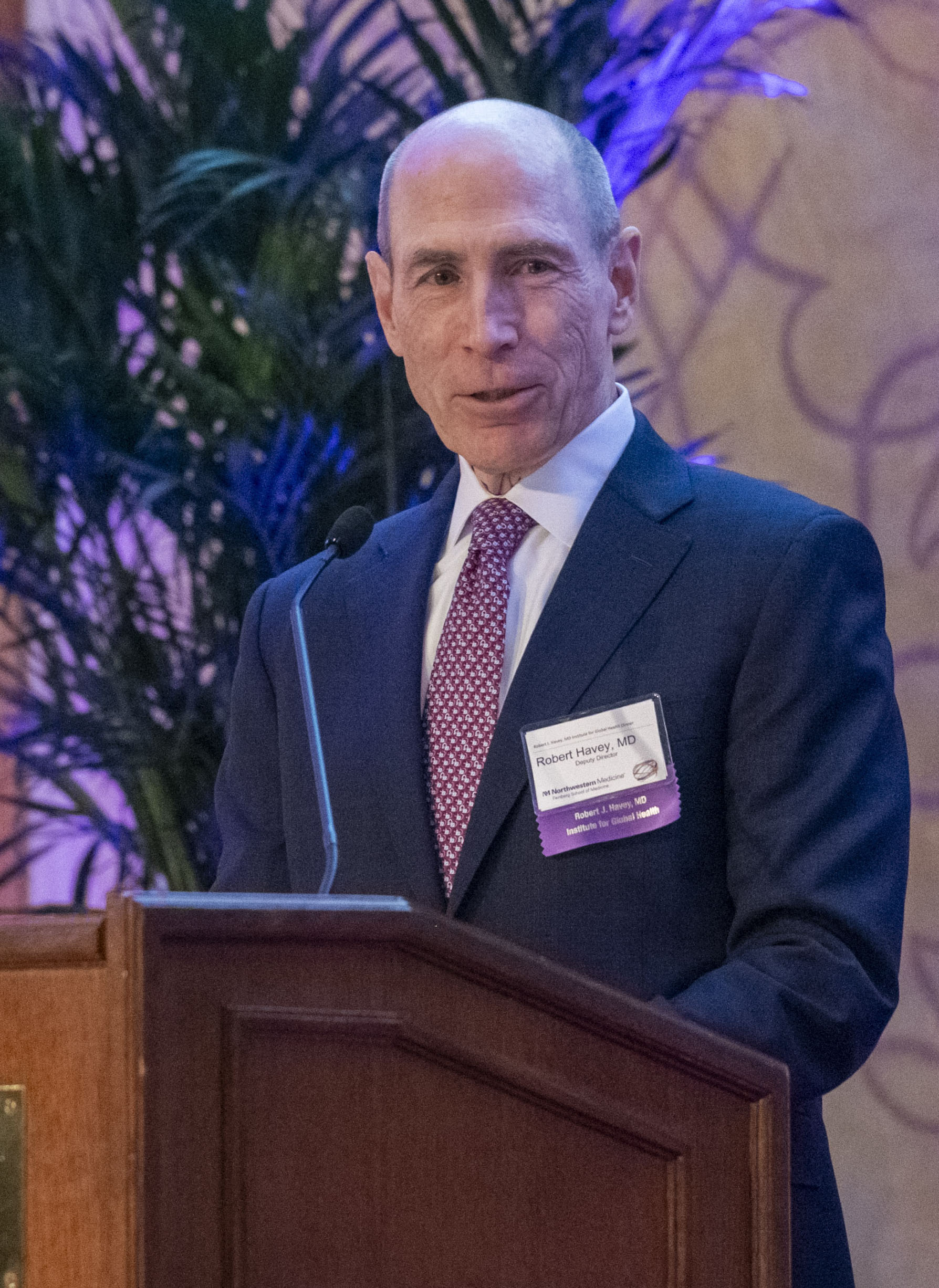
“The world does have a lot of problems, but we’ve become well-positioned at this institute to build a stronger and more sustainable response to many of those challenges,” said Robert J. Havey, ’80 MD, ’81, ’83 GME, deputy director of the Havey Institute for Global Health. “Our progress is real, our pace is quickening, and our potential to improve the lives of billions of people is within reach.”
Today, the institute has 400 members, 9 centers, and more than 50 partner sites and collaborations around the world. Over the past 15 years, Dr. Havey said, the institute has published over 3,500 scientific papers and been cited in other papers nearly 200,000 times. In the past year alone, the institute’s research programs have grown by 71 percent.
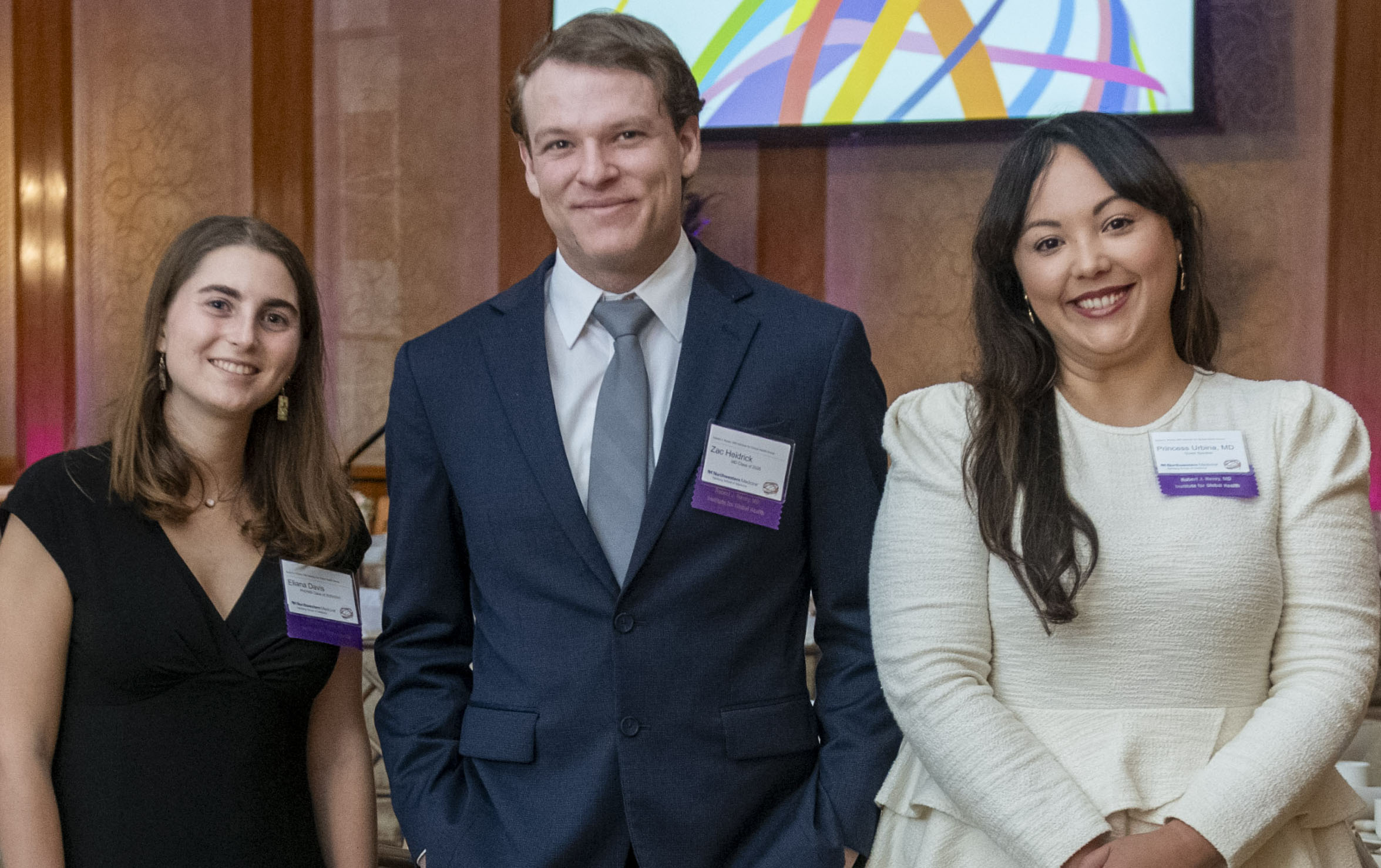
The Havey Institute for Global Health supports dozens of studies focused on improving human health around the world. In addition to contributing to a body of research aimed at improving patient care, the projects also provide invaluable training opportunities. At the benefit dinner, three students shared their experiences with attendees.
Princess Urbina, ’23 GME, working with Magdy Milad, MD, and Victor Trinkus, MD, helped establish the Salcedo Women’s Hospital in Salcedo, Philippines. Thanks to the Havey Institute for Global Health, the new hospital will treat women and girls with cervical cancer, which is the most common gynecological malignancy likely to cause death in women and yet an easily preventable, screened, and curable disease.
Why I Give to Global Health
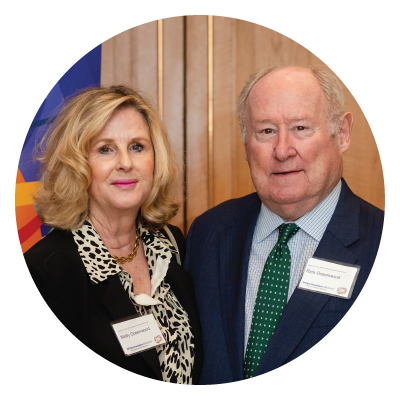 Rick and Molly Greenwood have supported the Havey Institute for Global Health since its inception. “It’s a very rewarding thing to do,” said Rick Greenwood, ’67 BA. “To see it grow, and support it, it’s really great.” Molly Greenwood attributed their support to their respect for Dr. Havey. “He is the most amazing doctor in the world,” she said. “That man works so hard. He’s available 24/7, even with all he does.”
Rick and Molly Greenwood have supported the Havey Institute for Global Health since its inception. “It’s a very rewarding thing to do,” said Rick Greenwood, ’67 BA. “To see it grow, and support it, it’s really great.” Molly Greenwood attributed their support to their respect for Dr. Havey. “He is the most amazing doctor in the world,” she said. “That man works so hard. He’s available 24/7, even with all he does.”
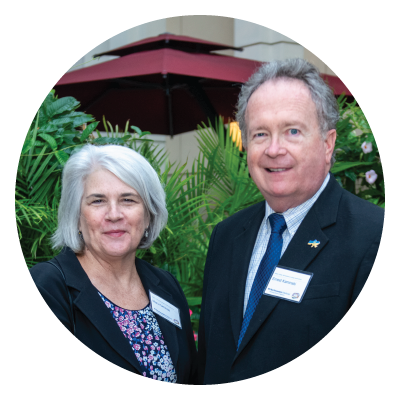 Ernest Kaminski, MD ’83, said he supports the Havey Institute for Global Health because of his connection to Northwestern as an alumnus. He also said he was inspired by Dr. Robert Murphy’s outreach during the first few years of the COVID-19 pandemic. “Listening to Dr. Murphy talk every day on WGN during COVID, it was really something.”
Ernest Kaminski, MD ’83, said he supports the Havey Institute for Global Health because of his connection to Northwestern as an alumnus. He also said he was inspired by Dr. Robert Murphy’s outreach during the first few years of the COVID-19 pandemic. “Listening to Dr. Murphy talk every day on WGN during COVID, it was really something.”
Dr. Urbina, who recently completed her fellowship in gynecological surgery at Northwestern University Feinberg School of Medicine, said in her remarks that she grew up in a rural region of the Philippines and saw firsthand the detrimental effects of poverty and limited access to healthcare.
“Growing up in this environment showed me in a very personal way what we all believe here at the institute—that every human being should have access to modern, often life-saving medical care, regardless of where they are born or live,” Dr. Urbina said.
Zac Heidrick, a second-year medical student, is working with Lifang Hou, MD, PhD, director of the institute’s Center for Global Oncology, on epigenetics research into cancer care within vulnerable populations living in low- and middle-income countries. Eliana Davis, who recently began the combined MD/PhD program at Feinberg, worked with Thomas McDade, PhD, a professor of Anthropology at Northwestern, in South Africa to design a portable cell incubator that enables biological research in regions of the world without electricity or laboratory facilities.
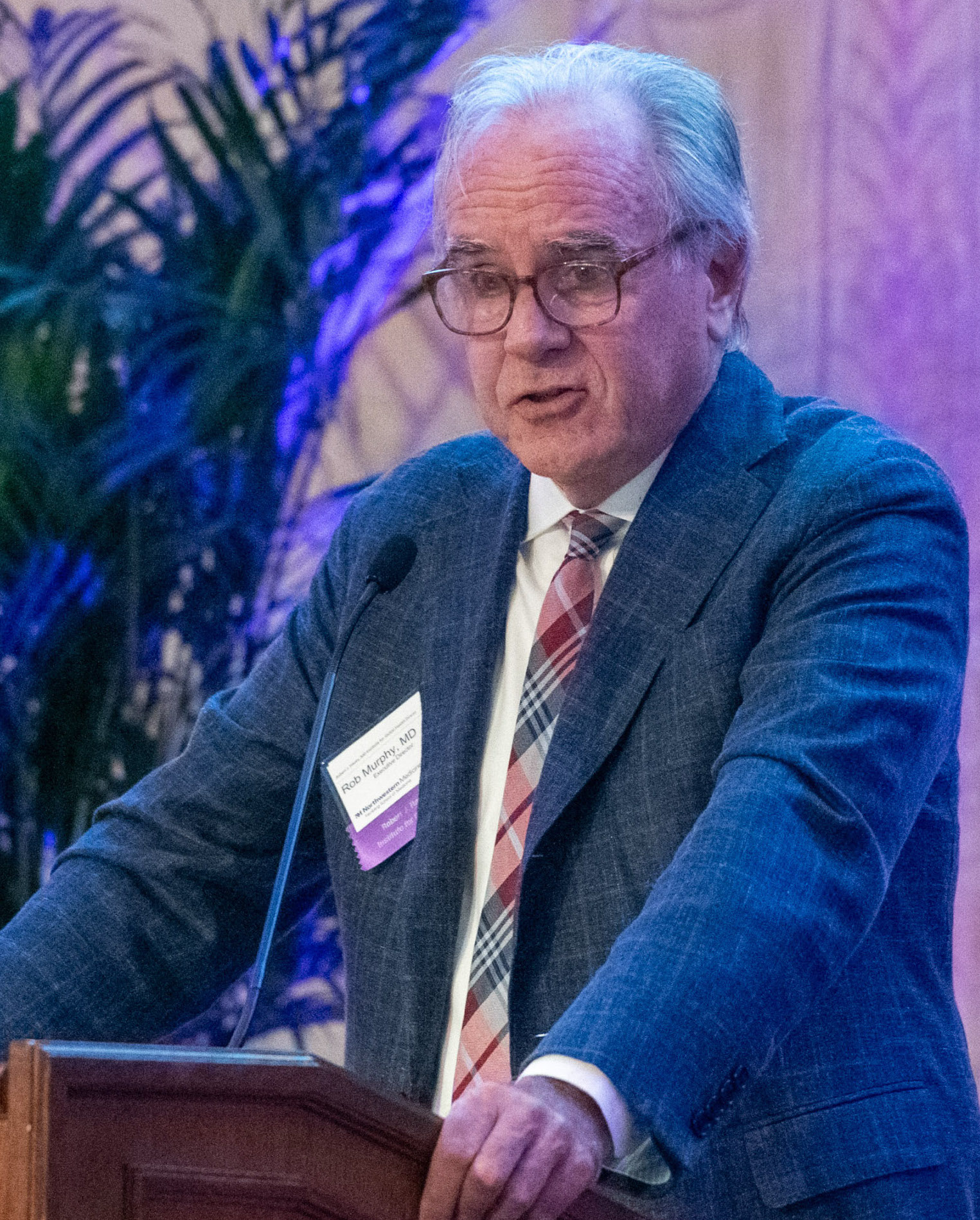
Robert L. Murphy, MD, ’81 ’84 GME, executive director of the institute and the John Philip Phair Professor of Infectious Diseases, described the transformative nature of the program becoming an institute in 2019, just before the outbreak of the COVID-19 pandemic.
"We were not deterred by the pandemic," Dr. Murphy said in his remarks. "Along with our global partners, we doubled our research portfolio, addressed many of the pandemic’s diagnostic and treatment challenges, and re-invigorated our medical student exchange program. We also managed to endow the institute, our Center for Global Primary Care, and a professorship in emerging infectious diseases."
The event was emceed by acclaimed broadcast journalist Bill Kurtis, who also narrated a short documentary about the institute’s work. The video showed the institute’s scientists, clinicians, and educators establishing a bio-repository for Hepatitis B research in Sub-Saharan Africa; developing a smartphone app to screen for ophthalmologic issues in Kenya; conducting research into AI cervical cancer screening in South Africa; training healthcare workers in palliative caregiving in Nigeria; holding echocardiogram workshops for pediatric cardiologists in Tanzania; and supporting Ukrainian surgeons providing cancer care to war refugees.
“Success may seem hard to define because of the sheer number of people in need, but it is attainable, one partner and one project at a time. And it is critical, as it will define the world our children will inherit,” Dr. Havey said.
For more information about supporting the Havey Institute for Global Health, please contact Jenn Burke at jennifer.burke@northwestern.edu or 312-503-4635.